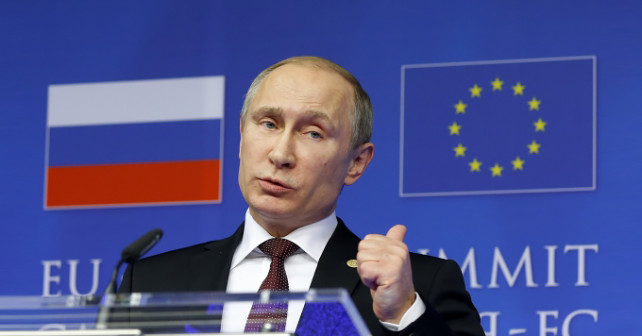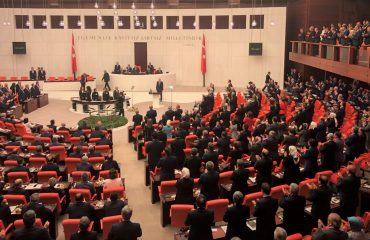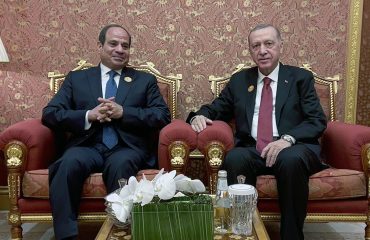

The European Commission’s Reports reveal Russia’s effect. We may have not noticed it, but Russia is actually the main instigator of NATO and European Union enlargement. The latest examples are Ukraine, Moldova and Georgia.
The European Commission adopted its 2023 Enlargement Package on November 8 and is testament to the direct or indirect influence of Russia.
In a couple of decades, we may look back on the map of Europe and see how Russia has influenced the alignment of countries. We may have not noticed it, but Russia is actually the main instigator of NATO and European Union enlargement. The latest development is the European Commission’s suggestion to open accession negotiations with Ukraine and Moldova and grant Georgia candidacy.
Russia’s effect on EU enlargement
In 2004 when the EU enlarged in what was then called the big bang, three candidates (Estonia, Latvia, Lithuania) used to be part of the Soviet Union, while four (Czech Republic, Hungary, Poland, Slovakia) were under its control. Slovenia once part of Yugoslavia removed its communist jacket and joined the EU as well. Bulgaria and Romania, two other countries that were under the influence of the Soviets, joined the EU in 2007. The latest to be part of the EU was Croatia in 2013, another remnant of former Yugoslavia.
Let us look at the other candidates. Montenegro, North Macedonia and Serbia used to make up the Federal Republic of Yugoslavia. Albania, another candidate was a hard line communist country. The last holdout of former Yugoslavia is Bosnia – Herzegovina. Although a candidate, its start for negotiations is still being debated. Kosovo is not recognized by five EU members, but is also a viable candidate and is kept close in order to resolve matters with Serbia.
Ukraine and Georgia have been invaded and Moldova is unofficially partitioned by Russia. Thus, if you look back at the latest enlargement acts of both the EU and NATO, most if not all have been either vestiges of the Soviet Union (in other words Russian) empire or were communist which was obviously shaped by Soviet Russia. After decades of neutrality Sweden and Finland knocked on the door of NATO due to the Russian invasion of Ukraine. This unfortunately also demonstrates that these two countries, members of the EU since 1995, do not feel sufficiently safe under the umbrella of Brussels. So the main entry ticket for partaking in these institutions is to be threatened by Russia one way or the other.
Standing up to Moscow has an opposite effect
Ironically, if you have been called a “bulwark” against communism and the Soviet threat, and stood fast with your Western allies for decades, it does not matter. Once the threat from Moscow seemingly receded, the need for Turkey diminished.
One must be fair. Turkey definitely missed many opportunities in its quest for EU membership. Although many claim that we have been waiting at the doors of Europe for sixty years after signing the Ankara Agreement way back in 1963, we formally applied for accession only in 1987. Nevertheless, thirty-six years is still a long time. Turkey received a typical dilatory answer from Brussels in 1989, that neither the European Community, as it was called at the time, nor Turkey was ready for such an accession. The Commission claimed that the Community was in the throes of completing the Single Market, which they did two years later, and thus could not contemplate enlargement.
While Turkey was occupied with completing the Customs Union, the former communist countries were advancing politically. 1993 was the year in which the Copenhagen Criteria was devised for the post-communist countries to return back to the “European family”. By 1997 they became candidates and seven years later members.
Turkey’s getting closer with Russia
After many hurdles Turkey finally became a candidate in 1999 and made progress on political and economic reforms for a number of years. However, after certain dire events, what the Commission calls backsliding began. Freedom of expression and the rule of law has suffered especially since the coup attempt of July 2016. Yet Turkey was never offered the same kind of treatment, assistance or leniency expressed for the other candidates. When you look back to the seventies and eighties, Greece, Portugal and Spain were given additional help as they came out of dictatorships. Turkey a country that has strived to be part of the West and accepted the conditions for membership was pushed away due to petty politics.
When Ankara started accession talks in 2005 the expectation was that Turkey would be integrated in due time. It was not just Greece and the Cyprus issue but rather France and Germany’s negative stance that prevented the two sides from getting closer. The other irony is that during the last decade Turkey has become much closer to Russia that any time in its history.
Nothing new for Turkey
The report reminds everyone that Turkey remains a key partner for the European Union and a candidate country in case it had been forgotten. It also recalls the decision of the European Council of June 2018, which officially halted accession negotiations. Although there is no movement on the modernization of the Customs Union or visa facilitation, the report underlines cooperation in areas of joint interest such as counter-terrorism, economy, energy, food security, migration and transport. Is it truly joint interest or issues of importance for the EU as the report states that Turkey has become “an important and reliable transit country” for energy reaching the EU, and is vital for Brussels on areas of common interest like migration, counterterrorism and trade.
The weakest point of these reports is that it just relates the facts and never looks at the reasons. For example it mentions that Turkey needs “to take decisive steps to significantly improve alignment with the EU’s CFSP and step up cooperation on preventing and detecting circumvention of restrictive measures.” The Commission continues to point out every year how Turkey’s alignment rate with that of the EU’s common foreign and security policy is low. Our harmonization with the EU’s foreign policy decisions has been shaped in line with the state of our relations. This aspect is ignored. Cohesion, which was around 90 per cent in the early years, declined from 2007 onwards, from around 40 per cent between 2011 and 2016 to 7 percent . Last year it was 8 percent and now it is 10 percent.
The EU recognizes that “Turkey is a significant regional actor in the area of foreign policy, which constitutes an important element in the context of the EU-Turkey relationship, even if differing views on certain foreign policy issues persist.” Yet, the EU is selective on how it deals with Turkey. The EU calls on Turkey to align with the EU’s restrictive measures against Russia. However it refrains from having a meaningful dialogue with Turkey on such issues which are vital for Turkey. The EU does not even invite Ankara as it has done in the past to the informal Gymnich foreign affairs meetings. The only discussions are usually at international meetings such as the G20 or at the United Nations General Assembly. The lack of dialogue is deafening.
Geography is changing
One other interesting fact is that with the Commission suggestions, the borders of the Union may soon be extended. Turkey’s candidacy, maybe not officially, but nevertheless privately in many quarters, was challenged in geographical terms. Notwithstanding that Cyprus is closer to Asia than Europe, Turkey’s location was debated for years. Now, with Georgia’s imminent candidacy, that discussion should come to an end. Who knows maybe the EU wishes to extend even further?
Last June the European Council asked the High Representative and the Commission to submit a report to the Council this month on the state of play of EU-Turkey relations. In other words, how to manage it as the relationship continues to suffer. A real dialogue is the way to start. Otherwise Russia may play a role again and then it will be too late.
EU-Türkiye relations in numbers: Giving up chasing membership


